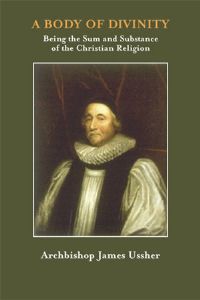My Shortest Sermon Text Ever
So, I somehow managed to do an entire Sunday morning sermon at PRBC on…one word. “Therefore.” Yep, I managed to pull it off. Had not at all intended to do so, but I did. Here’s the sermon:
Managed to get a bit farther through Hebrews 10 Sunday evening:
May I Join Pastor Nadarkhani in Being Condemned by the Iranian Supreme Court?
According to this report, the Iranian Supreme Court has condemned him because:
He has frequently denied the prophethood of the great prophet of Islam and the rule of the sacred religion of Islam. And he has proven his apostasy by organizing evangelistic meetings and inviting others to Christianity, establishing a house church, baptizing people, expressing his faith to others and, denying Islamic values.
I would like to join this brother in his condemnation. I deny the “prophethood of the great prophet of Islam.” I have all sorts of reasons for doing so, but the Qur’an provides me with all the evidence I need that Mohammad was not, in fact, a prophet sent by God. He contradicted those who were true messengers of God, and the Scriptures that had been given by God and that are even identified as such in the Qur’an. But I doubt Pastor Nardarkhani got to defend his denial of Mohammad’s self-proclaimed prophethood.
I likewise reject the “rule of the sacred religion of Islam” because I proclaim the rule of the King of Kings and Lord of Lords, Jesus the Messiah, who rules the nations and will judge all of mankind. Since Islam reduces my Lord to a “mere rasul,” I reject Islam and all of its spiritual and political pretensions.
I have often organized, and participated in, evangelistic meetings, and I am regularly inviting, calling, and directing others to Christianity. I do so in obedience to Christ’s command, a command that was uttered hundreds of years before Mohammad preached his first sermon in Mecca. It is a command about which Mohammad was, evidently, ignorant, and against which he has no authority to inveigh.
I have not established house churches, but I have surely helped and encouraged in the establishment of organized churches. I have likewise baptized people upon their profession of faith in Jesus Christ. When any sect or form of Islam specifically seeks to murder the followers of Christ for obeying His own commands, that sect shows its true nature as “anti-Christ,” as it opposes His direct commands.
I express my faith to others, including Muslims, all the time. And while this specific citation does not define “Islamic values,” there are surely many “Islamic values” that conflict with biblical values that I would reject wholeheartedly. One glowing example would be that of Surah 33 and its horrific destruction of the proper and godly practice of adoption (all for the sake of Mohammad’s physical desires for the wife of his adopted son).
May God grant Pastor Nardarkhani life, and freedom; but if the Lord chooses to allow His servant to join the glorious roll of those who have given their lives in witness to the name of Jesus Christ, may his life draw many more to bow the knee before the name of the Lord Jesus Christ, who is the resurrection and the life.
Roger Olson Finds A Typo and Provides an Insight
Olson writes about his new book, Against Calvinism (which a few folks have tried to buy for me on Kindle but, alas, so far, it hasn’t allowed it):
I know without any doubt that some critic of Against Calvinism is going to gleefully point out that I cannot even get my New Testament references right. I’m reading my own book for the first time in published form. I come to page 68 and read: “Some Calvinists interpret 2 Peter 2:4 as referring only to the elect, but in light of 1 Timothy 2:4, that hardly works. (Fourth line from the top through sixth line from the top.)…Obviously, it should read “2 Peter 3:9.” So I went back and looked at my manuscript. Sure enough, it says 2 Peter 3:9….And in this case, anyway, I’m sure this one error (hopefully it’s the only one!) will be touted as proof of my incompetence in handling scripture by some of my less generous critics.
Of course, I would find such a criticism silly, and anyone who would make such criticism should not be taken seriously. However, I would like to comment on the very brief statement that is made here. Specifically, I do believe that 2 Peter 3:9 is specifically referring to the elect. Of course, Olson cannot respond to my exegesis, because he refuses to read it. But that odd issue aside, simply following the pronouns will lead you to the proper antecedent. The text is more than sufficiently clear to provide its own context and interpretation. But note that in the quoted portion Olson leaps from the context of second Peter to an ostensibly already interpreted text from Paul in his epistle to Timothy. Now, of course, our readers will recognize that he is dealing with two of the “Big Three,” and we will have to see if there is any serious interaction with the issue of intercession in the text from I Timothy. But you do not interpret second Peter by such a shallow reference to a completely different context. This brief quotation, provided by Olson himself, does not bode well for the kind of exegesis we should expect from Olson’s new book.



